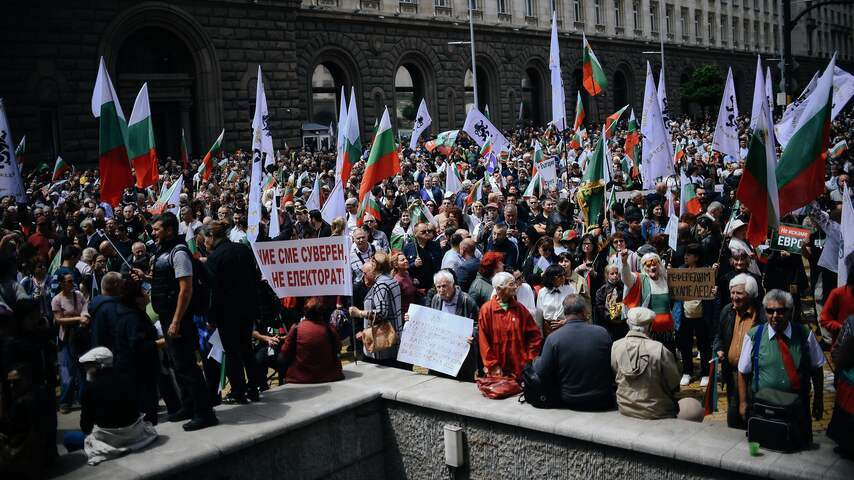
Duizenden mensen zijn zaterdag de straat op gegaan in Bulgarije om te protesteren tegen de invoering van de euro. Het land stapt begin volgend jaar over op de Europese munt.
De protesten werden gesteund door de uiterst rechtse partij Revival. Demonstranten blokkeerden in de hoofdstad Sofia korte tijd belangrijke kruispunten. De politie had delen van het stadscentrum afgesloten om de veiligheid te waarborgen. Mensen zwaaiden met Bulgaarse en Russische vlaggen en toonden leuzen zoals “We beschermen de Bulgaarse lev”.
Bulgaren betalen nu nog met hun eigen nationale munt, de lev. Op 4 juni wordt een oordeel over toetreding tot de eurogroep verwacht van de Europese Centrale Bank (ECB) en de Europese Commissie. Als deze twee instellingen het verzoek steunen, kan Bulgarije al volgende maand de goedkeuring krijgen van de lidstaten om het 21e lid van de eurozone te worden.
De Bulgaarse regering denkt dat de euro het land economisch kan helpen. Maar veel Bulgaren zijn bang voor stijgende prijzen. Volgens recente peilingen zou minder dan de helft van de Bulgaren het zien zitten dat het land volgend jaar al een euroland wordt.
De overstap naar de euro wordt al jaren tegengewerkt door Revival, de derde partij in het Bulgaarse parlement. Die partij, die ook banden heeft met Rusland, wil ook uit de NAVO stappen en het EU-lidmaatschap van het land heroverwegen.
Thousands of people took to the streets in Bulgaria on Saturday to protest the introduction of the euro. The country will switch to the European currency at the beginning of next year.
The protests were supported by the far-right Revival party. Demonstrators briefly blocked major intersections in the capital Sofia. The police had closed off parts of the city center to ensure safety. People waved Bulgarian and Russian flags and displayed slogans such as “We protect the Bulgarian lev”.
Bulgarians still pay with their own national currency, the lev. On June 4, a judgment on joining the Eurogroup is expected from the European Central Bank (ECB) and the European Commission. If these two institutions support the request, Bulgaria could receive approval from the member states as early as next month to become the 21st member of the Eurozone.
The Bulgarian government thinks that the euro can help the country economically. But many Bulgarians fear rising prices. According to recent polls, less than half of Bulgarians would like to see the country become a Eurozone country as early as next year.
The switch to the euro has been opposed for years by Revival, the third party in the Bulgarian parliament. That party, which also has ties to Russia, also wants to withdraw from NATO and reconsider the country’s EU membership.